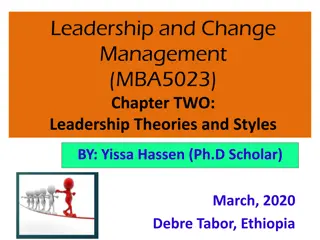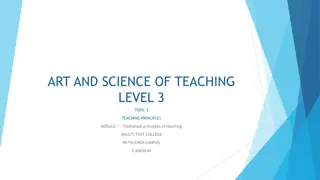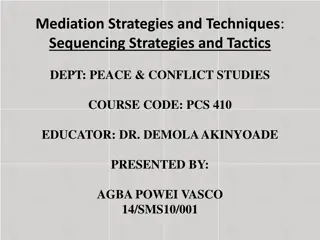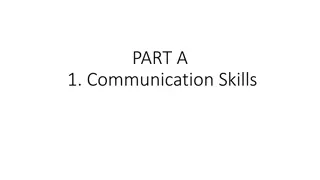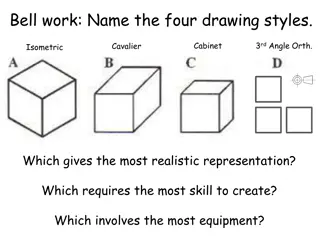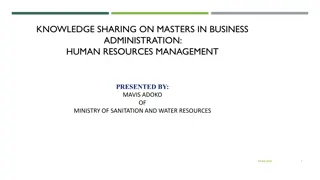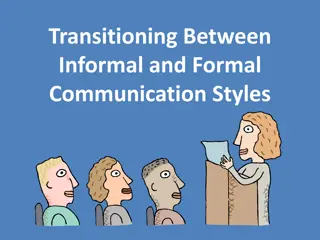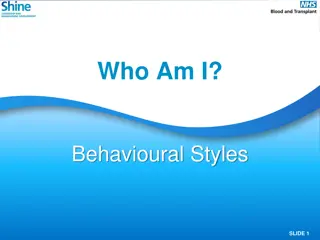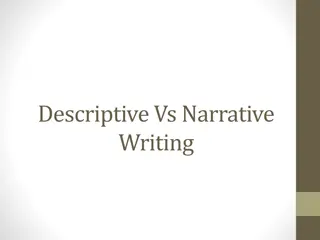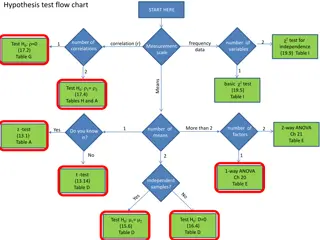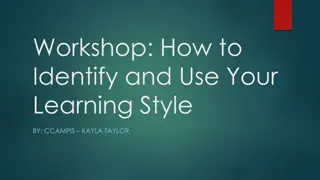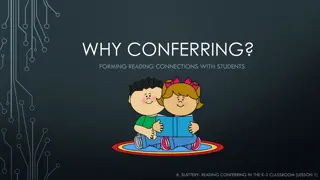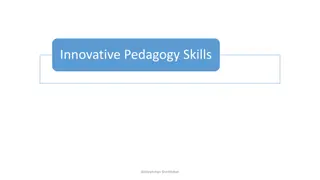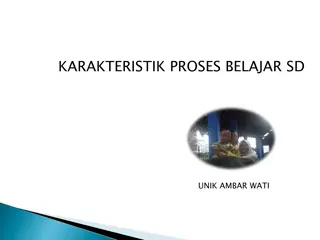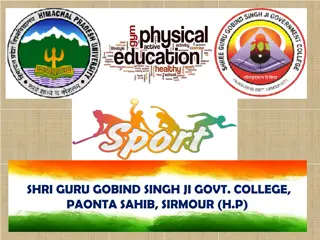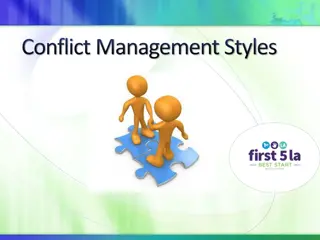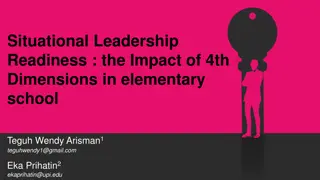Understanding Multiple Intelligences and Study Tactics for Different Learning Styles
Explore the various types of intelligence, including linguistic-verbal, logical-mathematical, and visual-spatial, each with unique strengths, characteristics, and potential career choices. Learn how individuals with different intelligences can maximize their learning potential through tailored study tactics such as flashcards, mnemonics, categorizing, and more.
Download Presentation

Please find below an Image/Link to download the presentation.
The content on the website is provided AS IS for your information and personal use only. It may not be sold, licensed, or shared on other websites without obtaining consent from the author. Download presentation by click this link. If you encounter any issues during the download, it is possible that the publisher has removed the file from their server.
E N D
Presentation Transcript
MULTIPLE MULTIPLE INTELLIGENCES INTELLIGENCES
VERBAL/LINGUISTIC Strengths: Words, language, and writing People who are strong in linguistic-verbal intelligence are able to use words well, both when writing and speaking. These individuals are typically very good at writing stories, memorizing information, and reading. Characteristics Characteristics of linguistic-verbal intelligence include: Good at remembering written and spoken information Enjoys reading and writing Good at debating or giving persuasive speeches Able to explain things well Often uses humor when telling stories Potential Career Choices If you're strong in linguistic-verbal intelligence, good career choices for you are: Writer/journalist Lawyer Teacher
VERBAL/LINGUISTIC Learns Best By: Saying, Hearing, Seeing words Stories Study Tactics: Make flashcards for vocabulary AND key concepts Speak aloud when self-quizzing Read textbook, notes (ones you took in class and from PowerPoint on website), handouts, etc. Rewrite notes/key concepts/definitions Orally summarize/recite section to another person Re-organize class notes Use mnuemonics
LOGICAL/MATHEMATICAL Strengths: Analyzing problems and mathematical operations People who are strong in logical-mathematical intelligence are good at reasoning, recognizing patterns, and logically analyzing problems. These individuals tend to think conceptually about numbers, relationships, and patterns. Characteristics Characteristics of logical-mathematical intelligence include: Excellent problem-solving skills Enjoys thinking about abstract ideas Likes conducting scientific experiments Good at solving complex computations Potential Career Choices If you're strong in logical-mathematical intelligence, good career choices for you are: Scientist Mathematician Computer programmer Engineer Accountant
LOGICAL/MATHEMATICAL Learns Best By: Categorizing Classifying Using relationships Quantifying Study Tactics: Organize chapter notes into an outline (roman numeral style Transform your notes into numeric charts, graphs, and tables Put information you receive into categories and classifications that you create Compare/contrast previously learned items with new concepts) Formulate analogies to describe abstract or complex ideas Create list of steps for processes or skills
SPATIAL/VISUAL Strengths: Visual and spatial judgment People who are strong in visual-spatial intelligence are good at visualizing things. These individuals are often good with directions as well as maps, charts, videos, and pictures. Characteristics Characteristics of visual-spatial intelligence include: Enjoys reading and writing Good at putting puzzles together Good at interpreting pictures, graphs, and charts Enjoys drawing, painting, and the visual arts Recognizes patterns easily Potential Career Choices If you're strong in visual-spatial intelligence, good career choices for you are: Architect Artist Engineer
SPATIAL/VISUAL Learns Best By: Visualizing Working with colors/pictures Study Tactics: Sketch pictures that go along with your notes or vocab Design charts, tables, diagrams, foldables, and/or Other graphic organizers to organize what you learn Picture images and scenarios in your mind Re-watch videos from class Color-code like concepts or related material in notes Use outlines
BODILY/KINESTHETIC Strengths: Physical movement, motor control Those who have high bodily-kinesthetic intelligence are said to be good at body movement, performing actions, and physical control. People who are strong in this area tend to have excellent hand-eye coordination and dexterity. Characteristics Characteristics of bodily-kinesthetic intelligence include: Good at dancing and sports Enjoys creating things with his or her hands Excellent physical coordination Tends to remember by doing, rather than hearing or seeing Potential Career Choices If you're strong in bodily-kinesthetic intelligence, good career choices for you are: Dancer Builder Sculptor Actor
BODILY/KINESTHETIC Learns Best By: Moving around Body language Touch and talk Engage in activities Physical interactions Experiments Study Tactics: Write concepts/terms down in your own words Act out the concepts you need to remember Look for real life examples Utilize manipulatives and interactive web material Try studying while moving or exercising Use physical motions to articulate vocabulary and key concepts Draw or write things in the air as you think about them Movable notes
MUSICAL Strengths: Rhythm and music People who have strong musical intelligence are good at thinking in patterns, rhythms, and sounds. They have a strong appreciation for music and are often good at musical composition and performance. Characteristics Characteristics of musical intelligence include: Enjoys singing and playing musical instruments Recognizes musical patterns and tones easily Good at remembering songs and melodies Rich understanding of musical structure, rhythm, and notes Potential Career Choices If you're strong in musical intelligence, good career choices for you are: Musician Composer Singer Music teacher Conductor
MUSICAL Learns Best By: Rhythm Melody Music Sound Drumming Listening Study Tactics: Create a song, rap, or rhymes Listen to instrumental music while you study Remember vocabulary words by linking them to similar sounding words in your mind Read text and notes aloud and repeat Chant phrases to beats
INTERPERSONAL Strengths: Understanding and relating to other people Those who have strong interpersonal intelligence are good at understanding and interacting with other people. These individuals are skilled at assessing the emotions, motivations, desires, and intentions of those around them. Characteristics Characteristics of interpersonal intelligence include: Good at communicating verbally Skilled at nonverbal communication Sees situations from different perspectives Creates positive relationships with others Good at resolving conflict in groups Potential Career Choices If you're strong in interpersonal intelligence, good career choices for you are: Psychologist Philosopher Counselor Salesperson Politician
INTERPERSONAL Learns Best By: Sharing Comparing Relating Cooperating Interviewing Leading Interacting Listening Study Tactics: Discuss what you learn with a friend or family member Have someone quiz you before an exam Create or join a study group Discuss what you learned with another Teach it to someone else
INTRAPERSONAL Strengths: Introspection and self-reflection Individuals who are strong in intrapersonal intelligence are good at being aware of their own emotional states, feelings, and motivations. They tend to enjoy self-reflection and analysis, including daydreaming, exploring relationships with others, and assessing their personal strengths. Characteristics Characteristics of intrapersonal intelligence include: Good at analyzing his or her strengths and weaknesses Enjoys analyzing theories and ideas Excellent self-awareness Clearly understands the basis for his or her own motivations and feelings Potential Career Choices If you're strong in intrapersonal intelligence, good career choices for you are: Philosopher Writer Theorist Scientist
INTRAPERSONAL Learns Best By: Reflection Individualized projects Self-pacing Having own space Intuition Study Tactics: Find a place to study alone where you won t be interrupted Talk to yourself or an inanimate object Reflect Keep a daily personal journal on what you learn Trust your gut
NATURALISTIC Strengths: Finding patterns and relationships to nature Naturalistic is the most recent addition to Gardner s theory and has been met with more resistance than his original seven intelligences. According to Gardner, individuals who are high in this type of intelligence are more in tune with nature and are often interested in nurturing, exploring the environment, and learning about other species. These individuals are said to be highly aware of even subtle changes to their environments. Characteristics Characteristics of naturalistic intelligence include: Interested in subjects such as botany, biology, and zoology Good at categorizing and cataloging information easily May enjoy camping, gardening, hiking, and exploring the outdoors Doesn t enjoy learning unfamiliar topics that have no connection to nature Potential Career Choices If you're strong in naturalistic intelligence, good career choices for you are: Biologist Conservationist Gardener Farmer
NATURALISTIC Learns Best By: Collecting data through observation Being outdoors Interacting with nature/plants/animals Study Tactics: Try to be in or near nature when studying Try to connect content to nature/natural world
THE DOG GAME Verbal/Linguistic: Saw word spelled out dog Spatial/Visual: Saw a picture of a dog in their head Logical/Mathematical: Trying to figure out the connection between me saying dog and what it has to do with what we just talked about. Bodily Kinesthetic: Saw an image of a dog, but it was doing something/moving (running, eating, wagging its tail) Interpersonal: Immediately wanted to turn to their neighbor and tell them a story about their dog or an experience they had with a dog Intrapersonal: Thought about their personal feelings about dogs, but felt no need to cue anyone else in Naturalist: Ready to share a lot of facts about the proper care and breeds of dogs also ready and willing to play with ANY of them.




